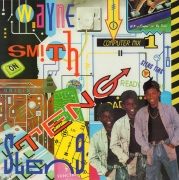|
Lord Gaga posted:
The vast majority of engineering grad students get paid as GTAs or GRAs to get their degree. There's tons of research money out there to fund it. Just for my two cents, I'm 75% through a masters in mechanical engineering, but I'm specializing in unmanned systems and mechatronics, which is something I couldn't really do in undergrad. That was probably the biggest reason I stayed for a masters right out of school, since I was still in required heat transfer/fluids classes my fall semester senior year. Many of the grad students in my lab are stopping at a masters. So the 'expected' path really varies depending on what you want to specialize or get a job in later.
|
|
|
|

|
| # ? May 16, 2024 21:38 |
|
movax posted:What's the "expected" path though? BS -> work for 2-3 years -> get MS/PhD -> return to work as subject matter god? I imagine a person that does that has better career prospects (and to be quite honest will probably be a better engineer and employee) than someone who goes BS -> MS/PhD with little to no work experience. I did the latter but only because I was in a position to finish my MS in 8 months on top of my BS, otherwise I wouldn't really recommend it for your average job. I got lucky that the economy was poo poo at the time so my pay bump on day 1 with an MS was way more than I would have gotten from working for that 8 months with a BS. The only tangible difference I can see is that I have a better understanding of research iteration and statistically sound testing but I think you can gain that on the job as a bright engineer with the right mentorship.
|
|
|
|
resident posted:I did the latter but only because I was in a position to finish my MS in 8 months on top of my BS, otherwise I wouldn't really recommend it for your average job. I got lucky that the economy was poo poo at the time so my pay bump on day 1 with an MS was way more than I would have gotten from working for that 8 months with a BS. Oh that's true, I guess I was being a bit unfair there. Now that I think about it, a lot of my classmates jumped on masters because they couldn't get jobs immediately after graduation during the whole recent economic meltdown thing. My school changed around admissions requirements/timing for their masters as well to catch all the potential students they could.
|
|
|
|
movax posted:Oh that's true, I guess I was being a bit unfair there. Now that I think about it, a lot of my classmates jumped on masters because they couldn't get jobs immediately after graduation during the whole recent economic meltdown thing. My school changed around admissions requirements/timing for their masters as well to catch all the potential students they could. I actually had a job offer but figured I would never again get the opportunity to complete my MS that quickly and without homework/school on top of a full time job so I asked for an 8 month extension on my start date. They were cool with it but probably only because I was hired after an internship so I had pretty much already proven myself as a worthy hire. They were nice and gave me a 6-7% pay bump while the majority of the Engineer 1/2s probably got 2-3% in that time frame. Moral of the story...get experience before an MS.
|
|
|
|
I've seen people go MS first and do well and I've seen experience then MS go well. It mostly depends on the person and the options presented for MS funding. I started mine in January, but when funding didn't get renewed for my project I took a break (because gently caress paying my money). I'm working now and am planning a move and starting at a more heavily funded school next fall.
|
|
|
|
I got a BS in nuke eng, then had a choice between MS or work. I liked choosing work, despite how easy the MS would have been to just sidle into, because with my current hindsight I'm pretty sure that I wouldn't have wanted to get a nuke MS. My college's dept was so built on R&D/lab/academia, and I find I enjoy being more hands-on and entrepreneurial. Now I think I'd end up choosing a different masters. Glad I decided BS -> work -> MS(?). Lots more flexibility.
|
|
|
|
movax posted:I don't think so, to be quite honest. At my jobs so far, haven't had many PhDs, and the ones that were had been at the company for decades. A masters turns into subject-matter-expert/technical expert and is totally desirable (at the right point in your career / experience-wise of course) though. I appreciate the feedback. I also haven't seen many Phds, but I was kind of worried it was because they had way cooler jobs than me. I think I'm going to set further grad school to the side for right now and consider switching jobs once I finish my MS. I'm starting to think what I really need to do is switch career paths. The stuff I have really enjoyed is prototyping and building stuff in the lab that I'm coming up with myself. For my MS stuff at school and some hobbyist stuff on the side I do circuit design, PCB layouts and embedded systems programming and I really enjoy it. What type of industry jobs could I look for where I would get to do that sort of stuff?
|
|
|
|
My parents are going loving bonkers that I'm doing a couple years of work experience before committing to an MS/PhD. I keep telling them that field experience is incredibly important for any engineer, but they can't shake the notion that no grad degree = not enough money to live and keep pestering me to go back to school immediately. Sorry guys, but that would be a horrible idea when I'm not 100% sure on what I want to do. Which brings me to...Marzzle posted:I did bioinformatics for an academic lab for about two years. Are you interested in research? Academia? Commercial development? Thanks for helping me out on this. So the skillset I'd need is more statistics-based than CS? What would qualify me for a bioinformatics job in the industry, then? Is this something I absolutely have to go to school for, or is it possible to get experience through work or something like that? Would certification in a language really be that important, then, as opposed to proving that I can model something in R? I am not sold on the idea of academia/research. Everything I've heard and seen of it makes it feel extremely political and harrowing (I've read the grad student thread Grad school, I am not averse to either, but I am definitely not at the point where I can handle it. I have not found precisely what it is I want to devote my entire life to and won't for a few years. An MS or PhD is probably at least a couple years off.
|
|
|
|
Grad school is something you really shouldn't do unless you have a very specific area of study in mind. I know if I had done it after undergrad it would have been useless, and in all probability in an area of study that I would've ended up hating. I'm five and a half years out of undergrad and I only just now have an inkling of what I would study in grad school if I ever decide to get an MS.
|
|
|
|
Grad school is largely a waste for engineering; two years experience would serve you far better than 2 years of grad school. The exception is of you get an MBA or something and roll into management.
|
|
|
|
I followed through with my M. Eng. immediately following my undergrad, but during my undergrad, I had completely 3 Co-op internship semesters. My field of interest was completely unrelated to my co-op, and my M. Eng. thesis was only tangentally related. Anecdotally, I've had an easier time getting my foot in doors of places I'd like to work than peers with just a bachelors degree. By the end of the interview, though, demonstrating an ability to get poo poo done is what has gotten me jobs. Personally, completing the M. Eng. really helped me to develop those "get poo poo done" skills. I don't regret it in the least, but I'm not as jaded towards academia as most engineers seem to be.
|
|
|
|
Zuph posted:I followed through with my M. Eng. immediately following my undergrad, but during my undergrad, I had completely 3 Co-op internship semesters. My field of interest was completely unrelated to my co-op, and my M. Eng. thesis was only tangentally related. I was thinking about going to graduate school and doing a controls based project. I think I might be the only mechanical engineer I know who finds that to be their favourite class, but every graduate project that I've seen in that field just sounds so interesting to me. My question: how hard was graduate school compared to undergrad? I have the impression that it's about the same difficulty, if not more. e: edited to be more specific about the field I'm interested in Isentropy fucked around with this message at 19:18 on Nov 1, 2012 |
|
|
|
grover posted:Grad school is largely a waste for engineering; two years experience would serve you far better than 2 years of grad school. The exception is of you get an MBA or something and roll into management. Yeah as someone who is currently looking for a new job, I've noticed that it's really only the elite companies like Intel that give a poo poo about graduate degrees for engineering.
|
|
|
|
I'm preparing my resume for a rash of (hopeful) interviews here on campus. I'm a sophomore, with a 3.03 (Set for a 3.5+ this year now that I have some study skills) in mechanical engineering at a top 10 school. I have two summer internships with the same company (one mostly manual labor/shop help and I was invited back for a second summer with more in depth stuff) under my belt. I'm active in several clubs; running for president of our division 1 rugby team this year and I'm relatively active with the FSAE club and business engineering association on campus. I'm also getting a minor in classics, as I tested out/got AP credit for nearly all of my electives and I love the subject. I've got decent shop experience and my past employer invited me back to work over the winter break, offering to teach me how to TIG weld and operate his CNC after I expressed interest. The head of the company is willing to be used as a reference. I'm comfortable with my social skills and I've got a lot of leadership experience, so I'm pretty sure I can nail an interview if I get to talking with someone, but in order to do that I need a great resume to combat that 3.0. Anyone have any resources for a great resume / a good template to start with for an undergraduate? Any idea what exactly I should focus on? Thanks in advance, I'm planning on uploading it so you all can critique. Edit: Thanks Bluff fucked around with this message at 06:38 on Nov 18, 2012 |
|
|
|
This is what I used throughout school: http://filebox.vt.edu/users/pbauden/SA/SAREZ.pdf My graduate resume has changed very little from this format and it has gotten me plenty of compliments/interviews (note, I did make a few small changes e.g. I knocked off the objective as my full-time job hunt got more defined, cleaned up & made more pertinent for full time job hunting). In short, don't use a template, make a custom table specific to how you want to format. That way you can make it original, but not be a douche with flair. Not to toot VT's horn, but I will anyways: http://www.career.vt.edu/ has a pretty good stash of career services information. Would recommend taking a look around when you've got some time.
|
|
|
|
Did anyone here get into engineering with a non-engineering degree? I recently graduated from U of T with a physics specialist and am completely unsure of what I want to actually do with it, but everyone's been telling me that engineering is an option for me but this seems really unbelievable to me. For instance, this report published by AIP shows over 30% of physics grads going into engineering. So I guess I'm wondering if anyone got into engineering with a similar degree, and if so what did you do? I'm not sure yet if engineering is for me but it'd be nice to know if its a real possibility or if people are full of poo poo.
|
|
|
|
Brownie posted:Did anyone here get into engineering with a non-engineering degree? I recently graduated from U of T with a physics specialist and am completely unsure of what I want to actually do with it, but everyone's been telling me that engineering is an option for me but this seems really unbelievable to me. For instance, this report published by AIP shows over 30% of physics grads going into engineering. I graduated with a Physics degree in 2011, and in August 2012 I was hired as a QA Test Engineer at a biomed company. I did a brief stint as a Business Analyst(Basically warehouse efficiency) but ended up going back to my first company, where I just applied internally for a Jr. Systems Engineering position. Everything went great except I fell a bit flat on the circuitry question. So be sure to brush up on basic mechanics/circuitry/materials. I don't know how successful you would be if you tried to go straight Jr. EE or ME right out of school. You'd have to have a lot of relevant experience I would think. Also think about engineering management, as that's a pretty open route for Physics degree holders as well. As I feel I somewhat represent this, the main thing everyone expects from a Physics grad is problem solving skills and the ability to pick up anything fairly quickly. This is why any type of job requiring heavy analysis is probably fair game, you just need to be able to demonstrate why you would be able to do it, both on your resume and in the interview.
|
|
|
|
Brownie posted:Did anyone here get into engineering with a non-engineering degree? I recently graduated from U of T with a physics specialist and am completely unsure of what I want to actually do with it, but everyone's been telling me that engineering is an option for me but this seems really unbelievable to me. For instance, this report published by AIP shows over 30% of physics grads going into engineering. My first job out of college with a math (and music) degree was engineering, first doing EE-related analysis and then physics simulations in the aero industry. If you're smart and have a science degree, even non-engineering, you will be fine! Engineering as a blanket job category can be interpreted pretty loosely, and a lot of companies would vie for your skills, although probably for positions similar to the ones I had. Have you had any industry internships? Are you looking for something hands-on or are you okay with largely cubicle/computer-based positions? Just asking because I jumped into systems engineering without looking and it wasn't really for me =/
|
|
|
|
Pollyanna posted:My parents are going loving bonkers that I'm doing a couple years of work experience before committing to an MS/PhD. I keep telling them that field experience is incredibly important for any engineer, but they can't shake the notion that no grad degree = not enough money to live and keep pestering me to go back to school immediately. Sorry guys, but that would be a horrible idea when I'm not 100% sure on what I want to do. Which brings me to... When it came to higher education I didn't bother listening to my parents as they had no idea about anything at University. Most engineers get their degree and move on with their career and building a practice. Other than specialised Masters degrees most post graduate work doesn't add much, unless you specifically want to do research and get caught up in academic hurf blurfing. I recommend just going and getting a job. Just be aware that once you're making money it's hard to get back to studying, but most do their masters degrees by distance learning and part time while still working.
|
|
|
|
swyys posted:My first job out of college with a math (and music) degree was engineering, first doing EE-related analysis and then physics simulations in the aero industry. If you're smart and have a science degree, even non-engineering, you will be fine! Engineering as a blanket job category can be interpreted pretty loosely, and a lot of companies would vie for your skills, although probably for positions similar to the ones I had. I haven't had any industry internships, never really thought about it during school unfortunately, as I now realize how important and useful such things can be. I never had very good grades unfortunately and so usually dismissed things like that quickly as being unobtainable. I would probably be more interested in computer-based positions, especially simulation stuff. My undergrad research project involved numerically simulating mantle convection and it was probably the most fun and rewarding thing I had done during my entire university career. Not sure if anyone could help me with this question, but where does one go looking for engineering jobs in Ontario? So far I've just been using my university's career site + indeed.ca, anything else I should be aware of?
|
|
|
|
Devian666 posted:I recommend just going and getting a job. Just be aware that once you're making money it's hard to get back to studying, but most do their masters degrees by distance learning and part time while still working. The nice part of this too is your employer will help you pay for it, or even all of it if you're lucky.
|
|
|
|
SeaBass posted:The nice part of this too is your employer will help you pay for it, or even all of it if you're lucky. grover fucked around with this message at 02:18 on Nov 6, 2012 |
|
|
|
.
Thoguh fucked around with this message at 16:14 on Aug 10, 2023 |
|
|
|
grover posted:Yeah, I'm starting my MS in Engineering Management in two months, and my employer is paying 100% of it. Even as a full time grad student right after your BS, there are so many ways for an engineer to get paid to study, that if you're paying for engineering grad school yourself, you're doing it wrong. It's also important to be aware that obtaining a fully funded full-time grad school experience might force you to jump on the bandwagon of a professor with funds whether you find their research interesting or not. That is what I did because I really didn't give a poo poo about what I was researching, as long as my degree was free. If you have a serious area of interest that is not a "hot" research topic getting full funding might not be as easy to come by.
|
|
|
|
One question I have for all control engineers in the field currently. I have been currently taking a mechatronics class which has involved a good amount of PLC programming. This has been hands down one of the most enjoyable subjects for me out of everything I have learned so far. Do you typically spend your time working on block/ladder coding, or is much more of your time devoted to PID's and laplase transformations? Really what it comes down to is that I am a ME graduating in a month that has a strong love of programming and wants to figure out what field lends best to that. Are ME's typically the ones working on PLC's and are they still very common?
|
|
|
|
Ingenium posted:One question I have for all control engineers in the field currently. I have been currently taking a mechatronics class which has involved a good amount of PLC programming. This has been hands down one of the most enjoyable subjects for me out of everything I have learned so far. Do you typically spend your time working on block/ladder coding, or is much more of your time devoted to PID's and laplase transformations? It really depends on the field. I cooped at a place that did automation in factories and it mostly programming PLCs with digital and analog logic but not using PIDs much. It was mostly just process control stuff like "if object touches sensor, start conveyor". Now I work at a power plant and a lot of engineers I work with do have to understand and use PID controls, though I believe that now you can actually implement a PID in a PLC fairly easily, though I haven't done it myself. If you're talking about R&D stuff that's probably a whole other ballgame.
|
|
|
|
The future of engineering: https://www.youtube.com/watch?v=jL3z8jTRry4
|
|
|
|
T.H.E. Rock posted:PS If any EE wants to get a job instantly, learn PCB layout on a couple of tools (been doing it since graduation). Unemployed designers basically don't exist and the pay's decent. I got hired to do it out of school as an ME with little experience and not so much as a circuits course, so obviously there's not a whole lot of talent out there. Recruiters call me all the time and I'd probably accept if I had any interest in continuing in the field. Could you elaborate on this a little bit, such as where a lot of this work is, what "tools" you're talking about, how best to present such things on your resume if you don't have any professional experience in that yet, and maybe a few names of companies that recruiters were contacting you for. alwayslost fucked around with this message at 20:48 on Nov 8, 2012 |
|
|
|
alwayslost posted:Could you elaborate on this a little bit, such as where a lot of this work is, what "tools" you're talking about, how best to present such things on your resume if you don't have any professional experience in that yet, and maybe a few names of companies that recruiters were contacting you for. At my job PCB designers are on the same level as an electrical tech. Essential to development but with very limited growth potential. They know how to use a tool but have pretty minimal understanding of theory and troubleshooting. Most of the PCB designers I've worked with only know how to connect node a to node b and aren't capable of or willing to learn how to route RF, power, or EMI critical traces. A lot of the design engineers end up doing a significant portion of the routing themselves because of this. Obviously this is anecdotal but if you are an ambitious EE with your sights set on a role with more variety and responsibility, be careful getting into this type of role. Places like Microsoft, Apple, HP, Motorola, Dell, etc will be the biggest names that use PCB designers. Cadence, Zuken Cadstar, and Eagle are 3 popular design SWs. Once you know one its very easy to figure most out. resident fucked around with this message at 21:10 on Nov 8, 2012 |
|
|
|
I'm in my senior year looking for the first job out of college. I've already finished my Peace Corps application and I think that so long as I don't develop a medical condition or go to jail, I'm accepted. I'm trying to look into other jobs and I'm wondering if I should still be considering internships at this point? Also, what are the thoughts on this resume as far as content and format? https://www.dropbox.com/s/zltatg5peqpeyg5/SA.doc A few issues/questions I have about it - Since this is longer than a page should I try and condense to one page or add more information to two pages? If condensing I think that .... --> Should I get rid of related courses? I'm taking a few courses this year that I think should go on there since they're optional and relate to one career path I'd like to take. These classes are Power Plants and Alternative Energy Systems. --> Should I shorten the fraternity? I feel that Engineers Without Borders and my Camp Counselor experience are much more important. Might be about time to remove TV Company from my resume. - As far as order of things, is this a good way to order everything?
|
|
|
|
alwayslost posted:Could you elaborate on this a little bit, such as where a lot of this work is, what "tools" you're talking about, how best to present such things on your resume if you don't have any professional experience in that yet, and maybe a few names of companies that recruiters were contacting you for. Hey, sorry for taking forever to respond. I want to echo Resident and say this is not a good job for a BSEE - but if you've got an AA, or a really bad GPA, it's a good place to start. The tools are pretty dependent on how cheap your company is, but these are the ones I've used: PADS, Altium, Allegro, Expedition, Eagle. Learn Cadence Allegro first. They're all fairly similar. Once you learn one, it's just a matter of learning the idiosyncrasies of the others, and you'll be pretty competent. Google some stuff about RF design, follow the IC datasheets on PCB layout, be careful on footprints, and you'll be ahead of the curve. A lot of these programs have free trials (or just pirate them, because honestly I doubt they expect non-corporate buyers at their prices). From what I can tell, the work is either vaguely around DC (because of ITAR restrictions, some defense work has to stay in the US, and a lot of defense co.'s are around DC) or on the West Coast. The UK has some jobs, too. Really, anyone who designs circuit boards is going to need someone to do layout. edit: Make sure you list the software you've used on your resume. Try all the software I listed here - they're the most common ones. If you're an EE, try designing some a circuit board and laying it out. You can even build the thing if you've got a toaster oven or a lot of patience. If you're not, try to find some board schematics and lay out the board yourself. You don't really need to be an EE to be a PCB designer (IMO you do, but the industry seems to think this is a technician role - never mind all the poo poo you need to know to be a good designer, and how important this is in board performance). Edit squared: if you're going to use Pads, I hope you have a long temper. Pads is the only program that's ever driven me to physical violence. T.H.E. Rock fucked around with this message at 03:55 on Nov 10, 2012 |
|
|
|
Hey, Mechatronics/control engineers, I've got a question for you. I'm really interested in both mechatronics and control systems, but I'm not sure where to go from here. I'm pretty motivated, so if I need to study something on my own, cool. Here's my issue: I'm a BSME with just the standard control systems class. Are there any resources I should check out that would prepare me for a job in control engineering? Do you have any useful links? Should I be working on projects or theory? Right now I'm torn between going to grad school for my MS or trying to get an entry level job. I don't give a gently caress about pay - honestly I'm more interested in doing work I enjoy.resident posted:At my job PCB designers are on the same level as an electrical tech. Essential to development but with very limited growth potential. They know how to use a tool but have pretty minimal understanding of theory and troubleshooting. Most of the PCB designers I've worked with only know how to connect node a to node b and aren't capable of or willing to learn how to route RF, power, or EMI critical traces. A lot of the design engineers end up doing a significant portion of the routing themselves because of this. T.H.E. Rock fucked around with this message at 03:51 on Nov 10, 2012 |
|
|
|
T.H.E. Rock posted:Hey, Mechatronics/control engineers, I've got a question for you. I'm really interested in both mechatronics and control systems, but I'm not sure where to go from here. I'm pretty motivated, so if I need to study something on my own, cool. Here's my issue: I'm a BSME with just the standard control systems class. Are there any resources I should check out that would prepare me for a job in control engineering? Do you have any useful links? Should I be working on projects or theory? Right now I'm torn between going to grad school for my MS or trying to get an entry level job. I don't give a gently caress about pay - honestly I'm more interested in doing work I enjoy. It depends on the control work. I do controls in HVAC with a bachelor's majoring in mechatronics as well as manufacturing systems (I've also got a physics degree but I never use that) which is pretty diverse in the people doing engineering e.g. apprentices who become technicians who become 'engineers' through just being around long enough, grads, professionally qualified engineers. A lot of people can do it, but on the larger or more complicated jobs customers prefer professionally/tertiary qualified engineers (mechanical engineers doing controls is fine, in fact most consultants specifying control strategies are mechanical engineers by qualification). At the end of the day knowing control theory properly sets you apart from the people who have just kinda learned on the job, but a lot of the specific implementations and language around the control ideas can vary by industry/company. My mates in the industrial controls division do effectively the same thing with much of the controls being SISO systems. They do use more upmarket equipment such as PLCs, HART bus sensors (all the poo poo I wish I could use on a job) and there is a lot more focus on reliability. In the industrial controllers all the loop tuning for SISO relationships can be auto-magically done by the controller, that is another reason why they're expensive beyond being super reliable. In the stuff we do the simpler a process is the easier it is to control and understand with the added bonus there are fewer fuckups + lower training requirements for operators which is great for saving $$$ and having good runtime. I do more electrical drawings, specification/implementation documentation, site co-ordination between us, the client, consultants and other subcontractors than sit down and tune loops / the system. I do, however, spend a lot of time discussing the control ideas with the consultants though. If you become a consultant it helps to listen to the control's subcontractors input; sometimes they have some good ideas too, after all it is their job to make it work 
|
|
|
|
I would look into the industry in the area. I'm in the south, so for me, pulp and paper. If you're on the coast, oil & gas. Inland, manufacturing/packaging conveyors. The industry drives controls engineering. This means building or refitting plants/rigs. That drives who's spending/buying. As for employers, look for "system integrator" positions, valve sizing sales engineer positions, design engineer positions within the industry purchasing the valves... Can't think of any more places to look right now. As for systems, look at abb, Rockwell, Emerson/Fischer/Rosemont, Allen Bradley, Honeywell.
|
|
|
|
boxorocks posted:It depends on the control work. This sounds like pretty interesting stuff. The two things that have interested me most throughout my engineering degree were controls and HVAC, but I've been turned off by the fact that most control applications are in the aerospace and defense industries. What sort of advice/training would you give to someone who wants to do a job like yours? Would graduate school be a good idea?
|
|
|
|
T.H.E. Rock posted:Hey, sorry for taking forever to respond. I want to echo Resident and say this is not a good job for a BSEE - but if you've got an AA, or a really bad GPA, it's a good place to start. The tools are pretty dependent on how cheap your company is, but these are the ones I've used: PADS, Altium, Allegro, Expedition, Eagle. Learn Cadence Allegro first. They're all fairly similar. Once you learn one, it's just a matter of learning the idiosyncrasies of the others, and you'll be pretty competent. Google some stuff about RF design, follow the IC datasheets on PCB layout, be careful on footprints, and you'll be ahead of the curve. A lot of these programs have free trials (or just pirate them, because honestly I doubt they expect non-corporate buyers at their prices). Yeah, I don't get this either. Our main PCB guy is hourly and really painful to work with (interpersonal skills or the lack thereof), but he's picked up a lot of experience along the way. That said, I usually end up doing a lot of the sensitive routing (PCIe, DisplayPort, QPI/HT, etc) myself, since we're a small shop and don't have a license for HyperLynx to do any simulations. Dude does have a pretty big knowledge base when it comes to manufacturing though, which is nice.
|
|
|
|
Isentropy posted:This sounds like pretty interesting stuff. The two things that have interested me most throughout my engineering degree were controls and HVAC, but I've been turned off by the fact that most control applications are in the aerospace and defense industries. What sort of advice/training would you give to someone who wants to do a job like yours? Would graduate school be a good idea?
|
|
|
|
Noctone posted:Maybe in specific regions, but I can't see this being true in general. There is a metric poo poo-ton of controls work available in other sectors. Oil & gas, manufacturing, wastewater treatment, chemical refineries, etc. Hell as an undergrad I've done co-ops and internships in three of those industries doing controls. The field is pretty wide open with that stuff in my region of the US.
|
|
|
|
You name me a field and I will tell how how to apply controls to it. Automation is massively important in manufacturing and everything you design is getting manufactured.
|
|
|
|

|
| # ? May 16, 2024 21:38 |
|
Would anyone who knows a decent bit about CPVC, pumps, piping, etc. be interested in taking a quick look at my senior design project? Our concept is just about finished and is modelled in SolidWorks. I'd just like to get some second opinions before we place our order for parts.
|
|
|































